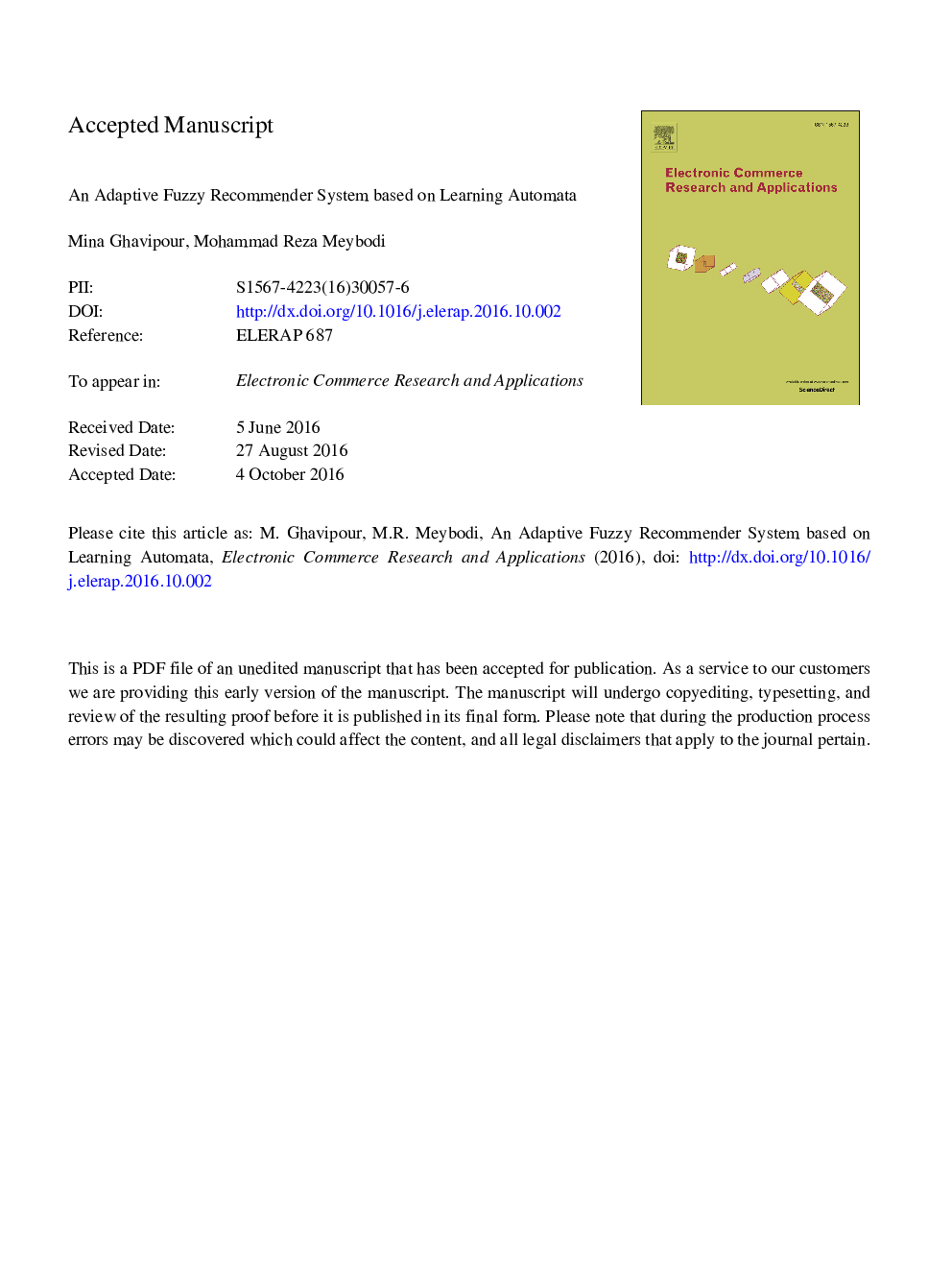| Article ID | Journal | Published Year | Pages | File Type |
|---|---|---|---|---|
| 4942550 | Electronic Commerce Research and Applications | 2016 | 37 Pages |
Abstract
Incorporating trust and distrust information into collaborative recommender systems alleviates data sparsity and cold start problems. Since trust and distrust are a gradual phenomenon, they can be stated more naturally by fuzzy logic. Finding the most appropriate fuzzy sets which cover the domains of trust and distrust is not an easy task. Existing research on fuzzy modelling of trust and distrust has not considered the optimization of membership functions. In this paper, we address this issue and propose a continuous action-set learning automata (CALA)-based method to adjust membership functions of fuzzy trust and distrust during the lifetime of recommender system in terms of recommendation error. By assigning a CALA to the centre parameter of each triangular membership function, the proposed method optimizes the number and the position of fuzzy sets. To the best of our knowledge, this is the first effort in this direction. The experimental results indicate that using the proposed method in fuzzy recommender systems improves the recommendation accuracy.
Related Topics
Physical Sciences and Engineering
Computer Science
Artificial Intelligence
Authors
Mina Ghavipour, Mohammad Reza Meybodi,
